
15311826613
Click to add WeChatCurrently, according to the complexity of the ore composition and the difficulty of beneficiation, gold ores can be roughly divided into poor sulfide ores, high sulfide gold ores, polymetallic sulfide gold-bearing ores, gold-bearing copper ores, tellurium-bearing ores Chemical gold ores and gold-containing oxidized ores. Due to different properties of various types of gold ores, the beneficiation methods used are also different. Next, let's take a look at the ore characteristics of various types of gold ore and their commonly used ore dressing methods.
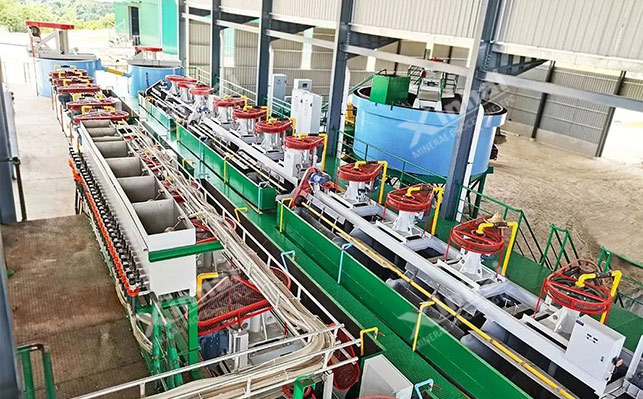
This type of ore has a relatively simple material composition, mostly Quartz vein type or hydrothermal alteration type. Pyrite is the main sulfide but the content is small, sometimes accompanied by copper, lead, zinc, tungsten, aluminum and other minerals. The gold mineral is mainly natural gold. Other minerals have no recycling value or can only be recycled as by-products.
Poor sulfide ores can be separated by relatively simple gold ore beneficiation methods. For example, coarse-grained gold is recovered by gravity separation, and fine-grained gold is generally recovered by flotation. The flotation concentrate is then cyanide-concentrated. chemical treatment, and extremely fine-grained lean ores are recovered using the all-sludge cyanidation method.
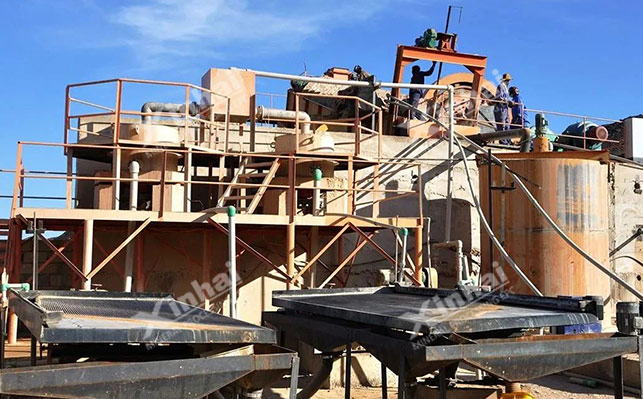
This type of ore contains a lot of pyrite or arsenopyrite , which, like gold, are also subject to recycling. The grade of gold is low and does not change much. The natural gold particles are relatively small and mostly wrapped in pyrite. It is generally relatively simple to separate gold from sulfides using flotation; however, to further separate gold from sulfides, a simple combination process of separation and smelting is required, otherwise gold The recycling index is not high.
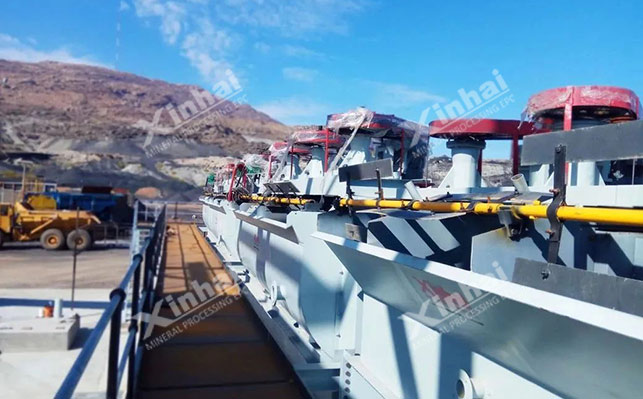
The characteristics of this type of ore aresulfide High contentIn addition to gold, the ore also contains copper, lead, zinc, silver, tungsten, antimony and other metal minerals, and the latter often have independent mining and recovery value. The particle size of gold varies widely, and its distribution in the ore is particularly uneven. In addition to being closely related to pyrite, natural gold is also closely symbiotic with minerals such as copper, lead, zinc, silver, tungsten, and antimony. Metal minerals that need to be comprehensively recycled diverse.
For the selection of this type of gold-bearing ore, it is necessary to first determine the ore type, and then determine the specific mineral processing method based on the difference in metal minerals and gangue minerals. For example, for gold-bearing copper-iron ore, the main metal minerals are chalcopyrite and magnetite. Natural gold exists in the form of fine particles in chalcopyrite. Theflotation-magnetic separation combined mineral separation process can be used To carry out separation, two products, namely gold-containing copper concentrate and iron concentrate, are obtained.
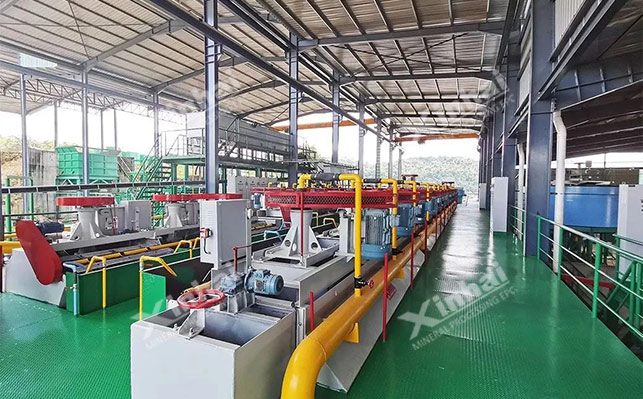
This type of ore and polymetallic sulfide contain gold The difference between gold-bearing copper sulfide ores in the ore is that the gold is of lower grade, but gold is the main comprehensive recovery element. The particle size of gold minerals is medium, and the symbiotic relationship with copper minerals is complex. Flotation + flotation concentrate fire treatment can be used for separation. That is, the copper-gold concentrate is first obtained by flotation method, and then the copper-gold concentrate is obtained. The copper-gold concentrate obtained by flotation is sent to the smelting plant for smelting, and gold is recovered during the smelting process.
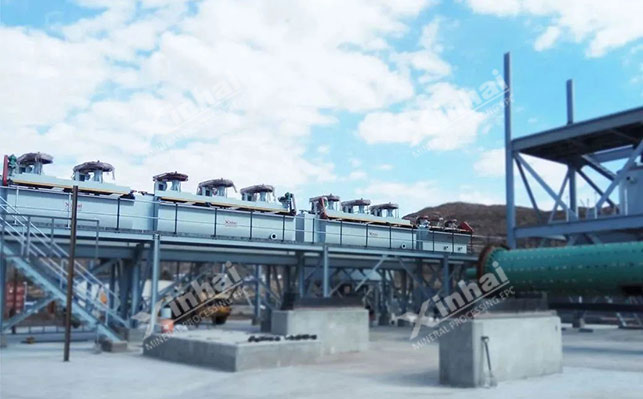
Gold-containing minerals are still mainly natural gold, but there are A considerable portion of gold is contained in gold telluride. This type of ore is mostly low-temperature hydrothermal deposits in terms of origin. The gangue minerals mainly include quartz, chalcedony quartz and carbonate minerals.
This type of gold-bearing ore is often recovered by flotation method. Since gold telluride minerals are brittle and easily muddy during the grinding process, which brings difficulties to the flotation of gold telluride minerals, when processing gold telluride-containing ores, staged grinding and staged flotation processes are often used.
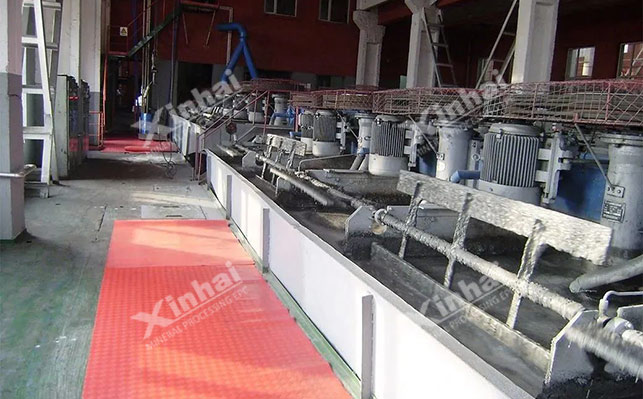
The main metallic mineral of this type of mineral is limonite and does not contain Or less sulfide, but containing gold-containing iron hydroxide or iron water-containing oxide and other stable secondary minerals and some quartz, this is this type of ore mineral Main features of the composition. Most gold exists in the main gangue minerals and weathered metal oxide cracks. The gold particle size varies greatly and the mineral composition is relatively simple. The selection methods are gravity separation and cyanidation. Lawis the main thing.
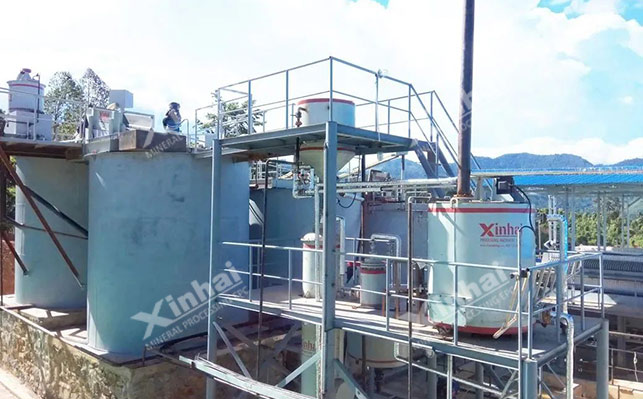
The above is an introduction to the beneficiation process methods and ore properties of the six different types of gold ores. For partially oxidized ores, the gravity separation + cyanidation method can be used for separation. For all oxidized ores, the coarse-grained gold is recovered by gravity separation, the slime is separated by stirring cyanidation, and the ore is separated by percolation cyanidation. .
Nowadays, gold ore resources are so tight, and more and more refractory gold mines are put into production. In order to better separate and remove gold ores, the gold ore beneficiation process is very important, so it needs to be carried out Ore beneficiation tests, comprehensive analysis of ore properties, and then scientific and reasonable design of gold ore beneficiation processes have achieved an ideal return on investment. Xinhai Mining has been researching gold ore beneficiation for more than 30 years and has very rich experience. It can conduct beneficiation tests and analysis on various gold ores, design gold ore beneficiation process plans, gold ore beneficiation plant construction plans and Complete sets of gold mining equipment, etc. If you have any needs, please feel free to consult!